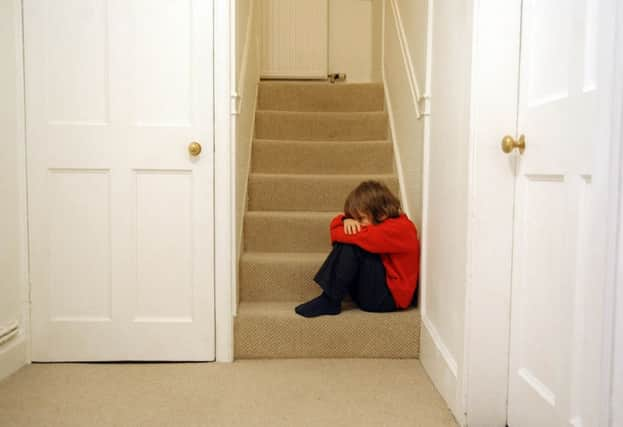Child experience shapes our lives


Not many of us would begin by describing the emotions and feelings we experience. We take it for granted that we can both understand and manage our emotions, as well as the feelings that places, people and events stimulate within us. But what if we looked at the world and saw chaos and danger all around us? How would we feel? How would we react?
When we find ourselves in a new place, somewhere we’ve never been before – whether it is the first day of a new job or turning up to a party and meeting lots of strangers – it is normal to experience a level of apprehension. Thankfully, most of us are able cope with these new events and the scary feelings that can be triggered – often referred to by professionals as “regulating” our emotions and feelings.
Advertisement
Hide AdAdvertisement
Hide AdThe ability and capacity to regulate our emotions does not happen by instinct. We are taught to deal with our emotions by the stable adults in our lives who have provided us with safety, structure and consistency. In psychological terms, this is referred to as a “secure attachment style” and having this in our early years is crucial, shaping who we are throughout our lives.
Children who experience the trauma of abuse or neglect in their early years often develop an insecure or disorganised attachment style and experience anxiety, fear and chaos. They may find it difficult to regulate their emotions because they have never learned how to. The result is that their behaviour is often reactive – they take action without sufficient thought or planning – and they are more likely to take harmful risks that most of us would stay away from.
Often, it can be easier to recognise and understand the harm caused by physical or sexual abuse because the connection between the abuse and its effects is more obvious. It can be far more difficult to draw a line between observable behaviour and the causes of it when children have experienced emotional and psychological harm.
At CrossReach’s residential services for children and young people, our ethos and practice is built on a relational model which is based on attachment theory and attachment informed practice.
In other words, this means we believe that children who have been harmed through relationships can be healed through relationships.
We want children who have experienced emotional and psychological harm to be able to see the world around them not as a place of chaos and danger, but as a place of opportunity and potential.
Since 2003 we have worked closely with Dr Dan Hughes, the clinical psychologist who developed dyadic developmental psychotherapy (DDP), as we support children and young people to deal with traumatic experiences. DDP involves creating an environment that is physically and emotionally safe as well as being playful, accepting, curious and empathetic (principles known as Pace). This helps us to establish and then maintain positive and purposeful relationships through which the children we support can begin to trust the care and authority of adults. Edwina Grant, a certified DDP therapist, consultant and trainer, describes Pace as “a way of being with the children and with each other, which supports the development of genuinely reciprocal relationships and the giving and receiving of comfort and joy.”
CrossReach is pleased to announce that it is one of only two residential services in the country to be approved by the Dyadic Developmental Psychotherapy Training Institute to start the process of formal DDP Organisational Certification. We recognise this as a means to a far more important end: it is only by understanding ourselves and how we see the world around us that we will be able to help others understand and cope with their world.
• Viv Dickenson is director of children and family services at CrossReach www.crossreach.org.uk
SEE ALSO